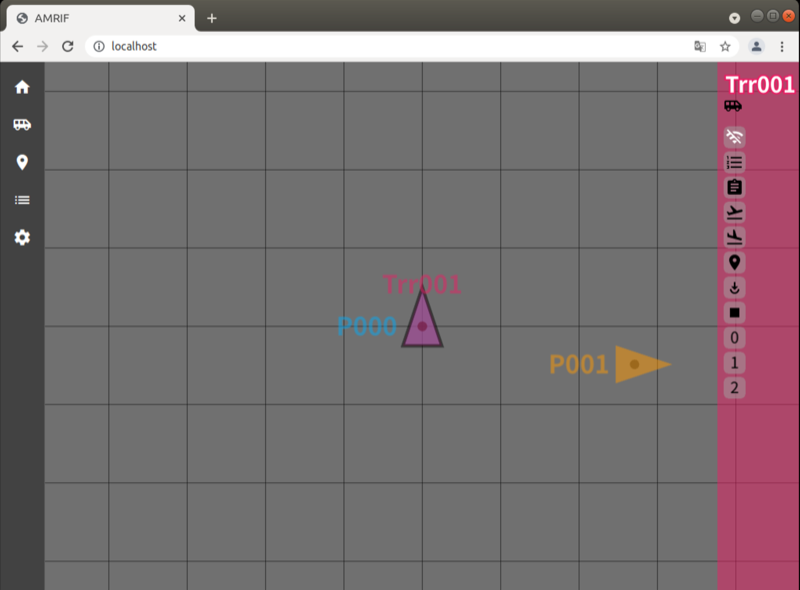AMR-IF-UI: Deployment
1. Deployment
AMR-IF-UI is constructed on Angular framework, and it can improve the loading speed in the browser by transpiling (compiling) it in advance with the AOT (Ahead-of-time) compiler. And can be deployed on a web server that does not have nodejs/npm etc. installed.
(However, AMR-IF-UI itself depends on ROS/Robot Web Tools, so you need to install the required packages separately.)
1.1. Build
Enter the ng build command in the project root directory of the AMR-IF-UI.
$ ls
LICENSE README.md browserslist img
ngsw-config.json package-lock.json src tsconfig.json
tslint.json LICENSE_HEADER angular.json karma.conf.js
package.json tsconfig.app.json tsconfig.spec.json
$ ng build
Compiling @angular/cdk/keycodes : es2015 as esm2015
Compiling @angular/animations : es2015 as esm2015
:
:
chunk {vendor} vendor-es5.js, vendor-es5.js.map (vendor) 7.42 MB [initial] [rendered]
Date: 2021-09-23T14:35:03.634Z - Hash: 36137cafdae0110f8877 - Time: 101231ms
A directory such as “dist/AMR-IF-UI” will be created, in which deployable packages have been generated.
$ cd dist/AMR-IF-UI/
$ ls
assets main-es2015.js main-es5.js manifest.webmanifest
:
styles-es2015.js styles-es5.js vendor-es2015.js vendor-es5.js
$
You can publish this project by copying the files in this directory to a publicly available directory on your HTTP server.
Let’s assume that “/var/www/data” is empty and is the Apache’s Document Root.
$ sudo cp * /var/www/data/
If apache is running, you will see the following screen when you access http://localhost.

1.2. Chaging base URL
In some cases, you may want to publish at a URL below a specific directory instead of publishing at the document root of the web server.
In that case, when building, use the “–base-href=option” to specify the path of the hierarchy to expose.
$ cd <project root>
$ ng build --base-href=/AMR-IF-UI/
$ cd dist
$ sudo cp -r AMR-IF-UI /var/www/data/
This will allow you to access the AMR-IF-UI at http://localhost/AMR-IF-UI/.